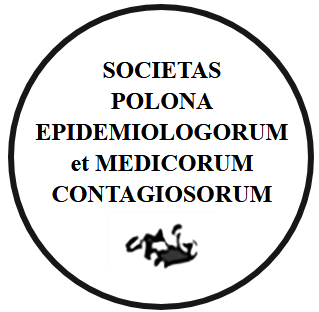RESEARCH PAPER
Disseminated mycobacteriosis and activation of latent opportunistic infections in the course of immune reconstitution inflammatory syndrome (IRIS) in a patient with AIDS: A case report
1
Oddział III, Wojewódzki Szpital Zakaźny w Warszawie
2
Wydział Medyczny, Collegium Medicum, Uniwersytet Kardynała Stefana Wyszyńskiego w Warszawie
3
Farmakolog Kliniczny, Wojewódzki Szpital Zakaźny w Warszawie
Submission date: 2025-07-25
Final revision date: 2025-09-17
Acceptance date: 2025-09-22
Online publication date: 2025-10-08
KEYWORDS
TOPICS
ABSTRACT
Advanced HIV infection leads to profound immunosuppression and increased susceptibility to opportunistic infections. Resumption of antiretroviral therapy (ART) may result in immune reconstitution inflammatory syndrome (IRIS), which manifests as a worsening of an existing infection or the emergence of new ones. Disseminated mycobacteriosis caused by Mycobacterium avium complex (MAC) is one of the most severe opportunistic infections in the course of AIDS.
The aim of this paper is to present the diagnostic and therapeutic difficulties in a AIDS patient who developed IRIS with generalized MAC infection and numerous metabolic and infectious complications following the resumption of ART, ultimately leading to treatment failure.
We describe the case of a 34-year-old HIV-positive patient who had discontinued ART for several years. Clinical, laboratory, imaging, and psychiatric data collected during several months of hospitalization were analyzed. A multidisciplinary approach was employed, including antiretroviral, antimycobacterial, antifungal, nutritional, and psychiatric treatment.
After ART was resumed, the patient developed IRIS in the form of disseminated MAC infection, confirmed in sputum, blood, and bone marrow. He developed refeeding syndrome, multidrug-resistant sepsis, and fungal and bacterial infections. Despite improved immunological parameters (increased CD4 and decreased HIV viral load), treatment was ineffective due to the patient's lack of compliance and worsening cachexia.
This case illustrates the complexity of caring for patients with advanced AIDS and IRIS. Effective treatment requires a multidisciplinary approach, early diagnosis of IRIS, and consideration of psychosocial factors that can significantly complicate treatment and prognosis.
Share
RELATED ARTICLE
We process personal data collected when visiting the website. The function of obtaining information about users and their behavior is carried out by voluntarily entered information in forms and saving cookies in end devices. Data, including cookies, are used to provide services, improve the user experience and to analyze the traffic in accordance with the Privacy policy. Data are also collected and processed by Google Analytics tool (more).
You can change cookies settings in your browser. Restricted use of cookies in the browser configuration may affect some functionalities of the website.
You can change cookies settings in your browser. Restricted use of cookies in the browser configuration may affect some functionalities of the website.





